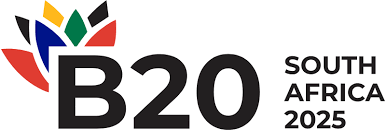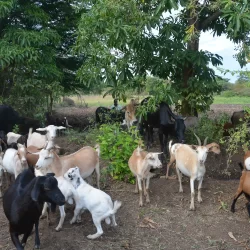Cape Town: The Business 20 (B20) summit, a gathering of global business leaders, convened in Cape Town recently, offering a stark yet hopeful vision for South Africa and the wider continent’s economic future. Amidst discussions on technology, infrastructure, and the ever-present shadow of corruption, a clear message emerged: Africa’s potential lies in its people and resources and a strategic focus on sectors like agriculture.
The digital revolution dominated much of the conversation. Sanlam CEO Paul Hanratty emphasized the need to bridge the digital divide, highlighting the vast informal economy and the urgent need for affordable data. “People talk a lot about AI, but to me, fundamental things, like being able to communicate via WhatsApp, can be very empowering,” he noted. Naspers South Africa CEO Phuthi Mahanyele-Dabengwa echoed this sentiment, stressing the importance of upskilling young people and fostering entrepreneurship.
However, amidst the tech-centric discourse, a crucial point emerged: the foundation of any thriving economy lies in its people and their basic needs. Toyota CEO Andrew Kirby pointedly remarked on South Africa’s declining performance in science and maths, underscoring the necessity for robust STEM education.
Crucially, the summit highlighted the vast, often overlooked potential of African agriculture. While discussions largely focused on technology, the continent’s agricultural sector stands as a pivotal, yet underutilized, engine for economic growth and job creation.
Imagine the impact of widespread access to digital tools not just for urban entrepreneurs, but for rural farmers. Imagine the power of affordable data transforming agricultural practices, connecting farmers to markets, and enabling them to access vital information on climate-smart agriculture. This is where the real potential for a future-ready economy truly lies.
The summit also grappled with the pervasive issue of corruption, a significant barrier to investment and development. Deloitte Africa CEO Ruwayda Redfearn, chair of the integrity and compliance task force, highlighted the staggering cost of corruption to the global economy, emphasizing its detrimental impact on Africa’s ability to attract foreign direct investment. “We cannot attract that foreign direct investment. We have a risk premium because of the association of the continent with corruption practices,” she stated.
Standard Bank CEO Sim Tshabalala brought the focus back to tangible solutions, highlighting the critical need for energy infrastructure. He stressed the immense funding required to address the continent’s energy deficit, emphasizing the necessity of mobilizing global resources.
Hanratty, in his concluding remarks, offered a pragmatic perspective: “I think the notion that we can plan all of this is a bit far-fetched. We’ll make our contribution as best we can to make sure that people are empowered with the base skills and also information to access opportunities. And then, I have huge faith in human endeavour to solve the problem.”
The B20 summit in Cape Town served as a vital platform for dialogue, highlighting the challenges and opportunities facing South Africa and the continent. While technology and infrastructure are essential, the true key to unlocking Africa’s future lies in empowering its people, fostering integrity, and harnessing the vast, often untapped, potential of sectors like agriculture. By investing in education, combating corruption, and strategically focusing on agriculture, Africa can pave the way for a more prosperous and equitable future.




